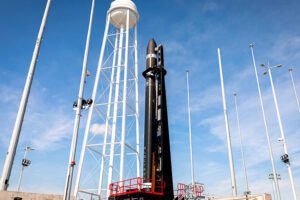Life On Mars: Scottish University To Study Mars Habitability
18th Mar 2024
Could living on Mars become a reality? Scientists from the University of Aberdeen will soon test Mars’ habitability after receiving funding from the UK Space Agency (UKSA). The programme will involve collaboration between the university and JAXA.
Japan’s space agency are in the midst of leading an extensive expedition before the end of the decade. The mission will be titled Habitability: Brine, Irradiation, and Temperature, or HABIT for short. To underscore the project, UKSA has injected £320,000 which will fund a “Martian Chamber” and other key instruments.
Professor Javier Martin-Torres, University of Aberdeen Planetary Sciences Group leader, commented: “we are delighted to be one of only seven universities in the UK – and the only one in Scotland – to be part of this funding award which will keep the country in the forefront of Mars research and astrobiology.”
The Mission: To Evaluate Mars’ Habitability
HABIT’s primary purpose will be to understand if Mars is a habitable environment. To do so, it will “measure key conditions on the planet”, the University of Aberdeen said. With the mission involving many moving parts, a two year launch window between 2028 and 2030 has been assigned. To get to the red planet, HABIT will fly onboard a JAXA spacecraft as part of their Mars exploration programme.
UKSA CEO, Dr Paul Bate, remarked: “The University of Aberdeen’s work with JAXA on environment monitoring technology for Martian rovers demonstrates how UK science can make crucial contributions to ground-breaking global missions that will deepen our understanding of our neighbouring planets.”
“Our funding will help catalyse international investment into the UK space sector and highlights the value we place on sharing knowledge and expertise with our counterparts overseas to push the boundaries of space exploration.”
HABIT’s Secondary Mission: To Create Water On The Martian Surface
Uniquely, HABIT will attempt to perform a first-of-its-kind feat: “produce liquid water on Mars”. The University of Aberdeen said this aspect of the mission arose from a theory that salts on the Martian surface assimilate water from the planet’s atmosphere. Thereafter, liquid water, or brine, is exuded during the night due to Mars’ drop in temperature.
Testing HABIT Through A Martian Chamber
A segment of the £320,000 will also fund the construction of a Martian chamber. The University of Aberdeen said the chamber will be approximately “the size of a refrigerator”. It will also be used for future projects outside the Mars programme.
In order to calibrate HABIT, it will be placed in the chamber. From there, HABIT will be put through its paces by emulated Martian “temperatures, pressures, and atmosphere”. The chamber testing will be performed on-site and ultimately validate if HABIT can withstand the Martian elements.
“We will be able to create a chamber at the University of Aberdeen, where [we] can simulate the environment of Mars. In addition to the calibration of HABIT, this milestone facility will enable us to train students and researchers in this unique area of space exploration,” Professor Martin-Torres concluded.
He continued: “it will also facilitate future international collaborations with both research and industry allowing us to test new instrumentation, materials, and components and to build greater understanding of Martian pressure conditions including a liquid water cycle and UV radiation exposure.”







Thank you for your comment! It will be visible on the site after moderation.